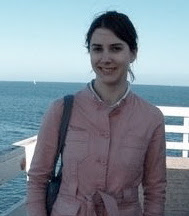This week consisted of many meetings. On Monday, Joanna, Jen and I met with Sue Julich to learn about Archon, an open-source program for delivering finding aids online in EAD. Sue showed us the basics of the program, and Joanna and I later spent time exploring it ourselves. We plugged in some legacy (i.e. old) finding aids to see how it worked. The nice thing about the software is that you don't have to actually write any EAD code yourself, but can copy and paste text into boxes with the appropriate headers and an EAD document is automatically created. The downside to this might be a lack of control, and that's something we'll have to evaluate as we assess the program further.
We also had meetings with David McCartney from University Archives and Janet Weaver from the Iowa Women's Archives. Like our meeting with Greg Prickman, our purpose was to learn about the current state of finding aids and the typical workflow in those units. The upshot is that all of them have their finding aids available online as static HTML pages. The format and means of processing them differ somewhat from unit to unit, but there don't seem to be any major differences beyond that.
Finally, I spent more time researching EAD to get a firmer grasp on how it is structured and what the different tags mean. I still have a ways to go on that front, as the tag library is quite large. I also took notes from the book "Arranging and Describing Archives and Manuscripts" by Kathleen Roe, to get a clearer understanding of terminology used in the archives world (fonds, series, manuscript vs. record group, etc.) that may be useful for learning EAD.
Next week, there's a data migration meeting planned with Wendy Robertson on Monday. Aside from that I plan to continue doing research, working with Archon, and playing around with EAD tags. Over the weekend, I'll be attending a TEI (Text Encoding Initiative) workshop at the University of Illinois. TEI is a markup language similar to EAD. Hopefully, learning it will prove to be very helpful for this project.
